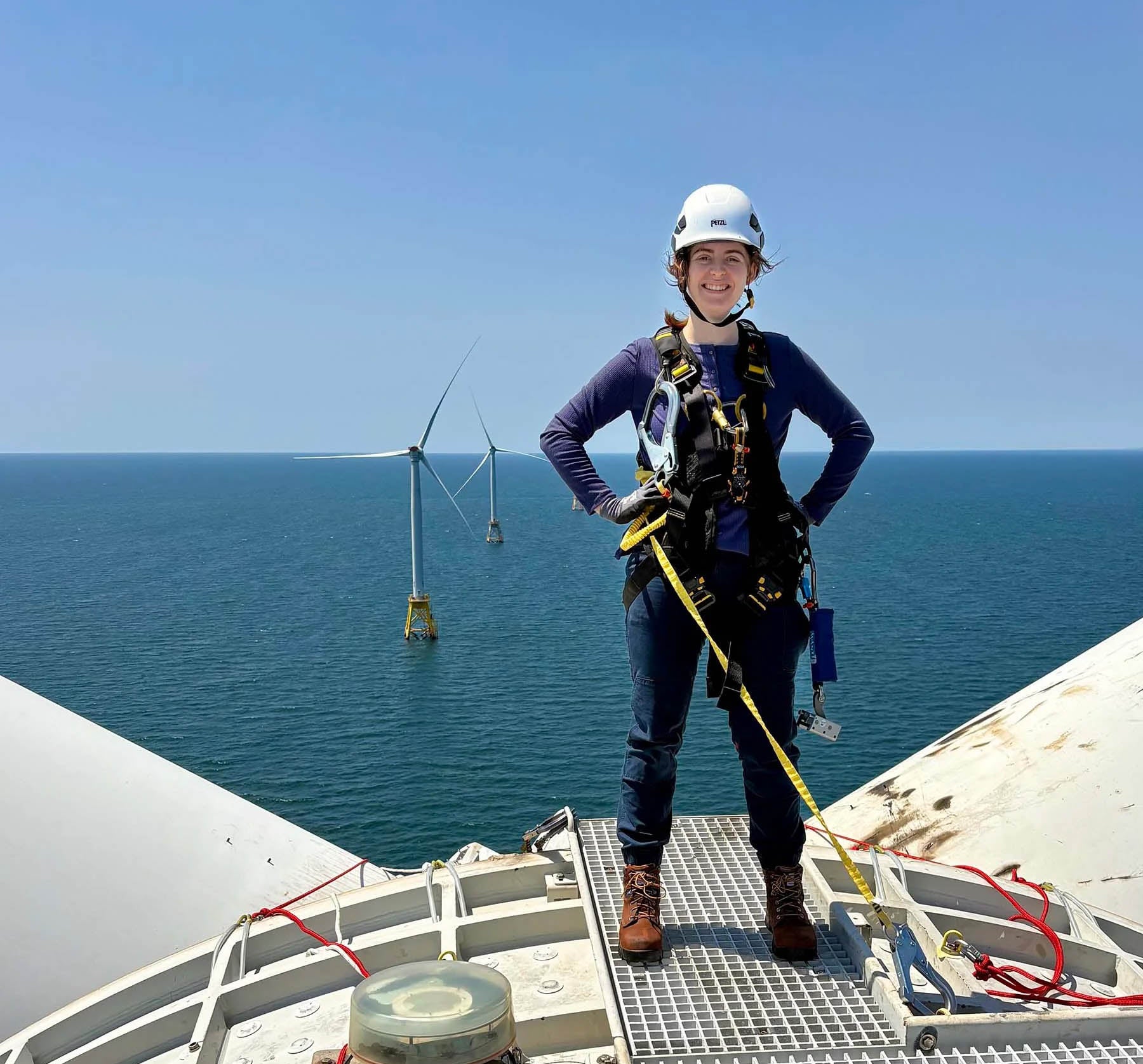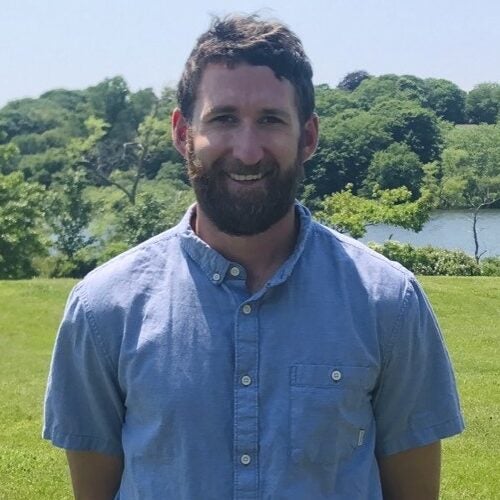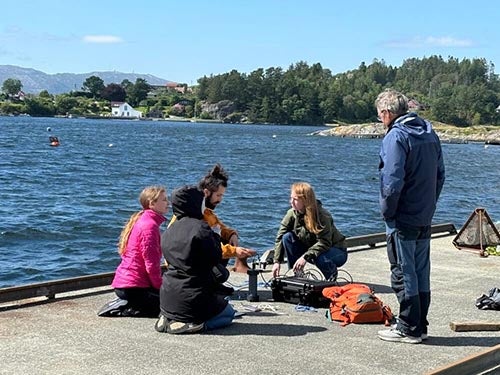Samantha Kipper, a senior at the University of Rhode Island in the College of Engineering, views the turbines through a different prism.
Continue reading "Above the waves: A URI senior’s view from atop the wind turbines off Block Island"Category: Water
Graduate student pursues commercialization of startup
Andrew Sheerin, civil and environmental engineering, M.S. ’23, Ph.D. ’25, of Newport, Rhode Island, came to the graduate program at the University of Rhode Island to deepen his understanding of sustainable systems and address his research gaps. He had a background in systems engineering and computer science, having earned a B.S. from George Washington University […]
Continue reading "Graduate student pursues commercialization of startup"International Collaboration on Arctic Research Between U.S., Norway and Canada
Dramatic changes have been observed in the Arctic Ocean in the past decades in terms of ocean temperature and salinity structure and ice-cover. Because sound travels long distances underwater, scientists have been able to use acoustic signals to localize oceanographic platforms and vehicles underwater and ice, but the way sound travels depends on the oceanography.
Continue reading "International Collaboration on Arctic Research Between U.S., Norway and Canada"


